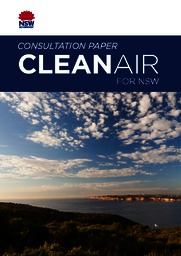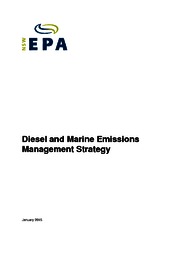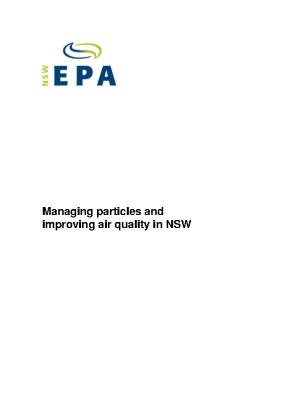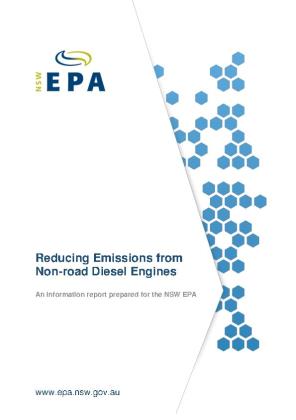Smoke pollution can aggravate existing heart and lung problems
like angina, emphysema and asthma. It can also cause
- itchy or
burning eyes and throat irritations
- breathing
difficulties and respiratory illnesses like bronchitis
- headaches,
tiredness or chest pain
- decreased
lung function in children.
Is your fire legal?
Burning of vegetation and domestic waste in the open or unauthorised incinerator is generally prohibited at
all times in all council areas in the Sydney, Wollongong and Newcastle regions,
and in other NSW council areas listed in Schedule 1 of the Clean Air Regulation. The EPA or local council may issue an open burning approval in some circumstances.
Check the map below or contact your local council to find out what and when you can burn
in your area and if you need open burning approval under the Clean Air Regulation.
You may also need to obtain a fire permit from Fire and Rescue NSW or the NSW Rural Fire Service before you light a fire.
Hover over an area of the map to see the council name and restrictions that apply.
 You are not allowed to burn anything in the open or in an incinerator, including any domestic waste or vegetation, unless the EPA approves it.
You are not allowed to burn anything in the open or in an incinerator, including any domestic waste or vegetation, unless the EPA approves it.
 You are not allowed to burn vegetation unless your local council approves it. Check if your council has an open burning policy. Burning of dry and dead vegetation on large lots may be permitted subject to conditions.
You are not allowed to burn vegetation unless your local council approves it. Check if your council has an open burning policy. Burning of dry and dead vegetation on large lots may be permitted subject to conditions.
 You are not allowed to burn domestic waste unless the EPA approves it. Burning of domestic waste is permitted if there is no domestic waste collection service in your area.
You are not allowed to burn domestic waste unless the EPA approves it. Burning of domestic waste is permitted if there is no domestic waste collection service in your area.
 You are not allowed to burn vegetation unless your council approves it. You are not allowed to burn domestic waste unless the EPA approves it. Check if your council has an open burning policy. Burning of dry and dead vegetation on large lots may be permitted subject to conditions. Burning of domestic waste is permitted if there is no domestic waste collection service in your area.
You are not allowed to burn vegetation unless your council approves it. You are not allowed to burn domestic waste unless the EPA approves it. Check if your council has an open burning policy. Burning of dry and dead vegetation on large lots may be permitted subject to conditions. Burning of domestic waste is permitted if there is no domestic waste collection service in your area.
 No restrictions on burning of vegetation and domestic waste in the open or in an incinerator.
No restrictions on burning of vegetation and domestic waste in the open or in an incinerator.
Part 3 of the Clean Air Regulation sets out the details of allowed and prohibited fires. sets out the details of allowed and prohibited fires.
No-burn notices issued by the EPA or Total Fire Bans issued by the Rural Fire Service override any of these conditions unless an exemption for specific circumstances such as hazard reduction burns is included in the notice.
When can fires be lit outside?
In areas where burning in the open is prohibited, there are certain situations where fires can be lit outside in NSW without needing an approval from the EPA or your local council. These include
- barbecues or camping
- fire pits
- eligible hazard reduction work
- some agricultural purposes
- authorised fire-fighting training
No-burn notices issued by the EPA or Total Fire Bans issued by the Rural Fire Service override any of these conditions unless an exemption for specific circumstances such as hazard reduction burns is included in the notice.
If you are planning to light an outside fire, you should check with the EPA, your local council, Fire and Rescue NSW or the NSW Rural Fire Service to make sure your fire is legal and obtain approvals to burn if needed.
Backyard fire pits and barbeques
NSW residents do not need approval for a backyard fire pit or barbeque.
While fire pits are not specifically listed in the Protection of the Environment Operations (Clean Air) Regulation, they are allowed as 'similar outdoor activities'.
Fire pits and barbeques must only use dry seasoned wood, liquid petroleum gas (LPG), natural gas or preparatory barbecue fuel (including a small quantity of fire starter). Anything else that causes excessive smoke is not allowed.
Local councils can take action if fire pits produce excessive smoke.
Camping fires
The Protection of the Environment Operations (Clean Air) Regulation allows the use of fires for recreational purposes such as cooking, camping, picnicking, scouting or other similar outdoor activities, so long as only dry seasoned wood, liquid petroleum gas (LPG), natural gas or proprietary barbecue fuel (including a small quantity of fire starter) is used.
The Regulation also includes general obligations to prevent or minimise air pollution.
Steps to prevent or minimise air pollution include
- taking into account the potential for smoke impacting on any person having regard to:
- wind direction
- weather conditions
- the length of time that the material being burnt is likely to burn
- taking reasonable measures to ensure that the material being burnt is not wet.
Local councils can take action such as issuing an order to put out or remove a fire, if use of fire for recreational purposes creates a public nuisance.
Fire permits
Fire authorities in NSW issue fire permits to ensure the safety of life and property. Fire and Rescue NSW issues permits for fires mostly in urban areas all year round while the NSW Rural Fire Service issues permits for fires mostly in rural areas during the bushfire danger period or where a fire is dangerous to buildings.
You must have an appropriate open burning approval from the EPA or your local council before you will be issued a fire permit.
If you are given approval to burn, you must
- prevent or minimise air pollution
- not burn specified articles including tyres, coated wire, paint and solvent containers and certain treated timbers (for more information, ask your council)
- check with the EPA, your council and Fire and Rescue NSW or the Rural Fire Service whether any fire restrictions are in force for the period you plan to burn
No-burn notices issued by the EPA or Total Fire Bans issued by the Rural Fire Service override any permits obtained except in specific circumstances.
More information


 You are not allowed to burn anything in the open or in an incinerator, including any domestic waste or vegetation, unless the EPA approves it.
You are not allowed to burn anything in the open or in an incinerator, including any domestic waste or vegetation, unless the EPA approves it. You are not allowed to burn vegetation unless your local council approves it. Check if your council has an open burning policy. Burning of dry and dead vegetation on large lots may be permitted subject to conditions.
You are not allowed to burn vegetation unless your local council approves it. Check if your council has an open burning policy. Burning of dry and dead vegetation on large lots may be permitted subject to conditions. You are not allowed to burn domestic waste unless the EPA approves it. Burning of domestic waste is permitted if there is no domestic waste collection service in your area.
You are not allowed to burn domestic waste unless the EPA approves it. Burning of domestic waste is permitted if there is no domestic waste collection service in your area. You are not allowed to burn vegetation unless your council approves it. You are not allowed to burn domestic waste unless the EPA approves it. Check if your council has an open burning policy. Burning of dry and dead vegetation on large lots may be permitted subject to conditions. Burning of domestic waste is permitted if there is no domestic waste collection service in your area.
You are not allowed to burn vegetation unless your council approves it. You are not allowed to burn domestic waste unless the EPA approves it. Check if your council has an open burning policy. Burning of dry and dead vegetation on large lots may be permitted subject to conditions. Burning of domestic waste is permitted if there is no domestic waste collection service in your area. No restrictions on burning of vegetation and domestic waste in the open or in an incinerator.
No restrictions on burning of vegetation and domestic waste in the open or in an incinerator.


